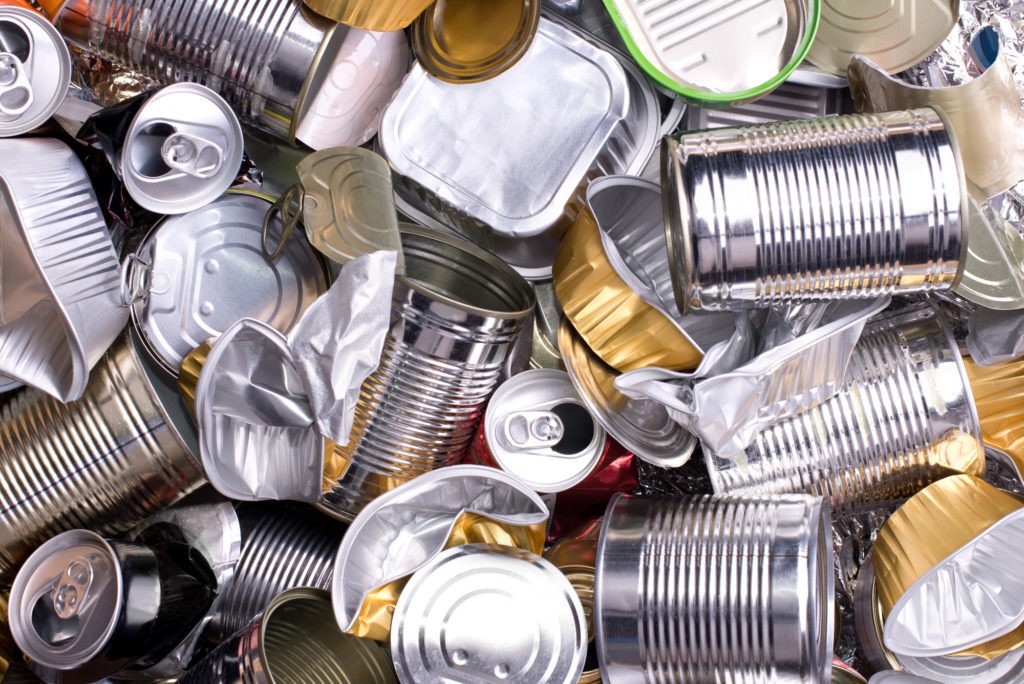Aluminum suppliers and recycling plants collaborate with individuals, towns, and corporations to make curbside and industrial recycling programs a reality. The most common type of recycling is aluminum drinking cans. Aluminum is recycled once it has served its purpose in products such as automobiles and construction materials. After recycling, aluminum is made into window frames, cable, tubing, and electronics at the end of their lives.
Aluminum is recycled in a variety of ways. Curbside and municipal initiatives are the most well-known consumer programs. Beverage cans, aluminum foil, aluminum baking trays, and pie pans are all recycled in these systems. Building and automobile parts are collected for recycling within the sector. Almost all of the aluminum produced in the United States is still in use today.
When compared to plastic, the numbers are staggering. It was discovered that 6.3 billion metric tons of the 8.3 billion metric tons of all plastic ever produced has gone to waste. Recently, China stated that it would no longer accept low-grade plastics for recycling, making the problem of what to do with all that plastic even more difficult for the US.
Not only is aluminum, in general, better for the environment in comparison to plastic, but recycled aluminum is also a step further! Recycling aluminum saves over 90% of the energy used to produce new metal, which is amazing because mining bauxite ore and converting it into aluminum is both environmentally and energy-intensive. New aluminum requires nearly double the amount of energy as new plastic. That is why we need to focus on recycling!
Aluminum can be recycled back into itself indefinitely, creating a true closed loop. That being said, however, recycling
Recycling is not yet completely regulated and uniformly organized across all countries. In the United States for example, while recycling may be established in large cities, it’s not always available in rural communities just 20 miles away.
Brazil on the other hand, is leading the way when it comes to effective recycling practices. In 2014, the country recycled 98.4 percent of packaging consumed, and has been number one in the world since 2001, reported the Brazilian Aluminum Association (ABAL).
For a greater visual: In 2014, Brazil recycled 289,500 tons of aluminum beverage cans out of 294,200 tons available in the market. The growth was 12.5 percent over the year prior. Broken down, that means 62.7 million cans were recycled per day—or 2.6 million per hour!
Why Does Brazil Recycle So Many Cans?
Across industries in Brazil, the cost of energy has rocketed up, which has trickled into the production costs associated with manufacturing aluminum. Last March, electricity rates in Brazil rose 22 percent—and a total of 60 percent over the year prior, according to Merco Press.
Add high production costs to an economy in recession on the verge of inflation, and you’ve got a natural incentive to conform to the most cost-effective choice. As a result, aluminum recycling was a more popular choice, yet again. Production of secondary aluminum from recycled material consumes 95 percent less energy, Mario Fernandez, coordinator of Abal’s Recycling Market Committee, told EFE.
Most recently (in 2014), aluminum recycling was found to be 1.3 percent more prevalent than in 2013, when the previous record was set. And recycling is a source of income for low-income families, which have organized cooperatives to collect cans.
Forecast for Brazil’s Aluminum Recycling
One concern is that the amount of refurbished aluminum (and imported scrap metal) may not be able to meet the demand. With a hike of aluminum needs, mining and processing aluminum may spike, too. But with even more efficiency, recycling overall in Brazil would double, Angela Gonzaga, president of the recycling cooperative in the Moreira Cesar district of Pindamonhangaba, told EFE—which would be incredible!
So What Does That Mean For Us?
For the US to increase its recycling ability, there are many factors at play. Consumers of plastic need to be aware of the environmental impact they are creating with that waste. Additionally, as they look for new products that use aluminum, such as canned water or soft drinks, the consumers should be collecting these for recycling. As far as cities go, communities can get together to petition for more recycling facilities run by the city, or private sector.
If you’d like to learn more about recycling aluminum, contact General Kinematics for more information.







